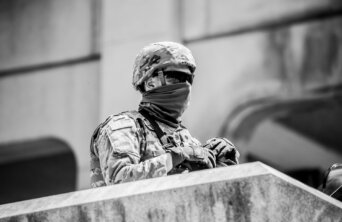- About
- Topics
- Picks
- Audio
- Story
- In-Depth
- Opinion
- News
- Donate
- Signup for our newsletterOur Editors' Best Picks.Send
Read, Debate: Engage.
| topic: | Transparency and Corruption |
|---|---|
| located: | Australia, Afghanistan |
| editor: | Shadi Khan Saif |
The recent exposure of Australia's most decorated military officer as someone involved in war crimes in Afghanistan is a testament to the crucial role of fearless and independent journalism in promoting justice and accountability in society.
Last week, a court in Australia ruled that Ben-Roberts-Smith had committed a series of atrocities during his deployment in Afghanistan between 2009 and 2012, including the murder of unarmed civilians, the killing of an elderly man found hiding in a tunnel, and the murder of a disabled man with a prosthetic leg during the same mission.
The judgment, which came out of a defamation case Roberts-Smith had filed against journalists who exposed his crimes, underscores the importance of a free press in bringing to light hard truths and holding those in power accountable for their actions.
A summary of the judgment has been published by the federal court.
In 2018, Australia's Sydney Morning Herald, the Canberra Times and The Age launched a series of investigative reports that alleged Ben Roberts-Smith had committed war crimes while serving in Afghanistan. These publications followed leads from sources on the ground in Afghanistan, gathering first-hand accounts and evidence that ultimately helped establish the undeniable truth about the top soldier's actions.
Once convinced of the veracity of their reporting, the newspapers fearlessly held up a mirror to the powerful in the country and stood firm in their defense of the truth, even when Roberts-Smith filed a defamation case against them.
The recent verdict by a Sydney court declaring the journalists who exposed Robert-Smith's war crimes as truthful is a long-awaited step towards justice for the Afghan villagers who suffered at his hands. Despite the soldier-turned-businessman's attempt to bully and destroy the news outlets with his defamation case in 2018, the journalists stood firm in their commitment to the truth and ultimately prevailed.
But while this ruling is an important development, it cannot heal the wounds of those who have suffered from war crimes in Afghanistan, nor can it undo the damage that has been done.
As this verdict is in a civil case lodged by the convicted soldier, no specific line of legal action is suggested. It is now the responsibility of the Australian authorities to take the necessary steps towards ultimate justicefor the victims.
Nevertheless, the journalists who exposed Roberts-Smith's crimes have done a noble service by standing up for truth and justice and giving a voice to the voiceless victims of his atrocities.
The recent verdict declaring Ben Robert-Smith guilty of war crimes brings a sense of closure to the story of his atrocities, while highlighting the importance of investigative journalism in promoting justice and accountability in unexpected times and places.
Those in positions of power often resist independent and strong media, but for the oppressed and voiceless, a free press is more important than ever. To promote equality and peace worldwide, the protection of a free press must be ensured through legal and financial mechanisms, as it is a fundamental human right that cannot be compromised.

